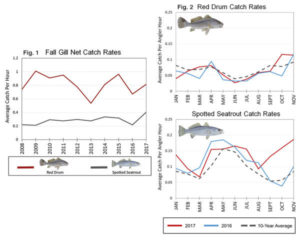Thank goodness the guessed at stormy weather did not appear while we fished at Sinclair last Sunday. Just the thought of being on the lake in a lightning storm and memories of past experiences made me shiver. But I didn’t have to hide from them.
Two of my worst experiences were back in the 1970s. One June, Bobby Jean Pierce and I went to Bartletts Ferry several days before a tournament to practice. We camped at a marina near the dam but wanted to explore up the Chattahoochee River
Back then, the river channel was not marked, and dangerous big mud flats were unknown to most fishermen. We spent some time working our way up the river, learning how to run it. And we caught fish. They were unpressured since few bass fishermen went up there.
One muggy, cloudy afternoon we were fishing near the mouth of a small creek. It was very hot and still. Suddenly, without warning, lightning cracked nearby. We thought about running the 20 minutes back to camp, but we were afraid to try it in the wind and pouring rain that immediately started.
We eased into the creek that was about five feet deep and 30 feet wide and had overhanging trees. We thought the lightning would surely hit the trees, not us, back in there. I sat up front running the trolling motor, keeping the boat in one place since the wind tried to push us out of the creek.
After a half hour I noticed the boat was not moving. When I looked down, there was several inches of water in the bottom of the boat. The rain had filled it up so much the weight had pushed the big motor into the bottom, anchoring us.
Finally, about an hour later, the storm moved off.
We managed to pump the water out, crank up and get back to camp just before dark. That was a miserable 90 minutes, sitting in the boat hunched over and jumping every time the lighting cracked around us.
The second time I was at Jackson on an August Friday afternoon, getting ready for a tournament the next night. It was just me and my dog Merlin this time. After putting in at Kerseys in the middle of the afternoon, I had found some fish biting on a point up Tussahaw Creek, but I wanted more than one place to fish.
About an hour before dark I ran to the dam to fish a point right beside it. The afternoon had been hot and muggy with thick clouds, but no rain fell. I guess those conditions should have warned me.
A little before dark wind started howling over the dam and rain started coming down in the proverbial sheets, blowing over the dam like a waterfall in reverse. Within seconds lightning started. There was no flash then a pause before the thunder. There would be a flash – crack – boom all together, indicating the lighting was on top of me.
Back then there was no buoy line at the dam, so I eased the boat right against the concrete. It rose 20 feet over me and I thought the metal railing and walkway on top of the dam would protect me like a lightning rod.
I put the front of the boat on the rocks and got down in the driver’s seat, wanting to be as low as possible. Merlin had the same idea. She huddled under the console at my feet. I wanted to join her!
We sat like that over an hour, twitching every time the lightning popped. Finally, about an hour after dark, the storm moved off and we went back to the ramp and headed home. Another miserable night!
